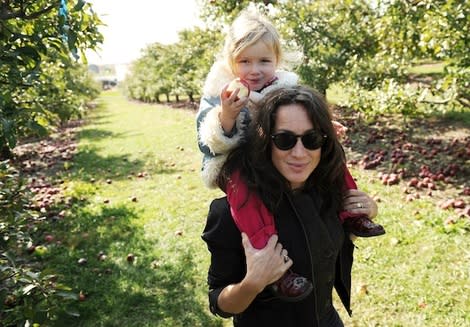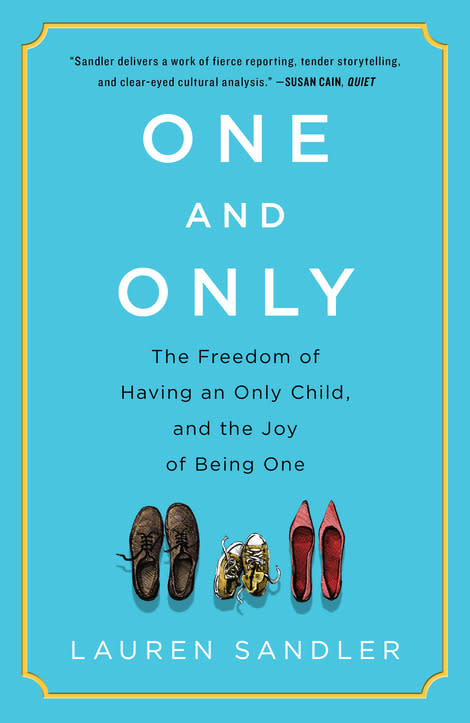Only Children: Debunking the Myths

Lonely. Selfish. Maladjusted. These are the words most often associated with only children. In her new book, One and Only: The Freedom of Having an Only Child and the Joy of Being One, journalist Lauren Sandler argues persuasively that being born a singleton is isn't a tragedy, but gift-both for a kid and their parents.
"I was amazed at how much research has disproved our stereotypes about only children, and yet the myths still remain in place," Sandler tells Yahoo! Shine, "It's like it's the only bias to survive political correctness unscathed." Poring over 500 academic studies, Sandler found that in 25 out of 32 different intelligence tests, only children scored higher than other kids-and scored as high in four. Perhaps more surprisingly, they also demonstrated equal peer popularity, generosity, emotional stability, and contentment. And, they were observed to be no more narcissistic than children with siblings.
Still, a recent Gallup poll found that more than three-quarters of Americans believe that being an only child is a "serious disadvantage," and a mere three percent think that it's okay to stop with one kid-down from 17% in the 1970s. "So fundamental to American ideology and identity is the notion of family and what a family should look like," says Sandler. The idea that a larger family is preferable has been internalized by most of us.
Sandler herself was raised an only child. "My parents and I had a great time together, I had very close friends, I read a lot," she says. "Honestly I didn't realize this was such an issue myself until I became a parent myself."

Three years ago, when her daughter was two, Sandler found herself standing in a grocery line, and the cashier asked her when she was going to have another child. When she replied she wasn't planning on a second, the woman scolded, "You wouldn't do that to your child. You'll see." Sandler wrote about the incident in a Time Magazine cover story, which subsequently went viral, opening up a discussion about embracing a family alternative that was almost viewed as a taboo-a bad choice for children and a selfish one for adults.
But Sandler counters how having one child can help parents have some degree of freedom, both economic and social, in a world in which it's increasingly tough to get by. The economic realities of raising a kid today-a child born in 2011 will cost an average of $235,00 by the time they reach 18-make two incomes a necessity, and parents, especially woman, are stretched thinner than ever before. Every child "adds no less than 120 housework a year," she writes. "No wonder those mothers of siblings can't stomach my complaints."
"As the demands of the workplace have expanded to swallow up our lives, clashing with our consuming love affair with our children…" she writes. "It's hard to imagine how anyone can find time to make a living. Or read a newspaper. Or have a conversation with one's partner about anything other than what errands need to be done, who is covering pick up or making dinner."
Sandler says that her daughter occasionally asks for a sibling and she sometimes feels the pang of not having a second child, "I do love babies and their weight on my lap and knowing that physical deliciousness is on its way out and that plugs into my sense of longing." But she says that if she and her husband, a photographer, had a bigger family they wouldn't be able to afford to live in New York City and pursue their careers.
Although 'One and Only' makes a strong case for only children, Sandler isn't out to prosthelytize. "If I chose to stop at one, she writes, that's not a referendum on anyone's choice not to," she writes. "The whole point is to live the life you want."
